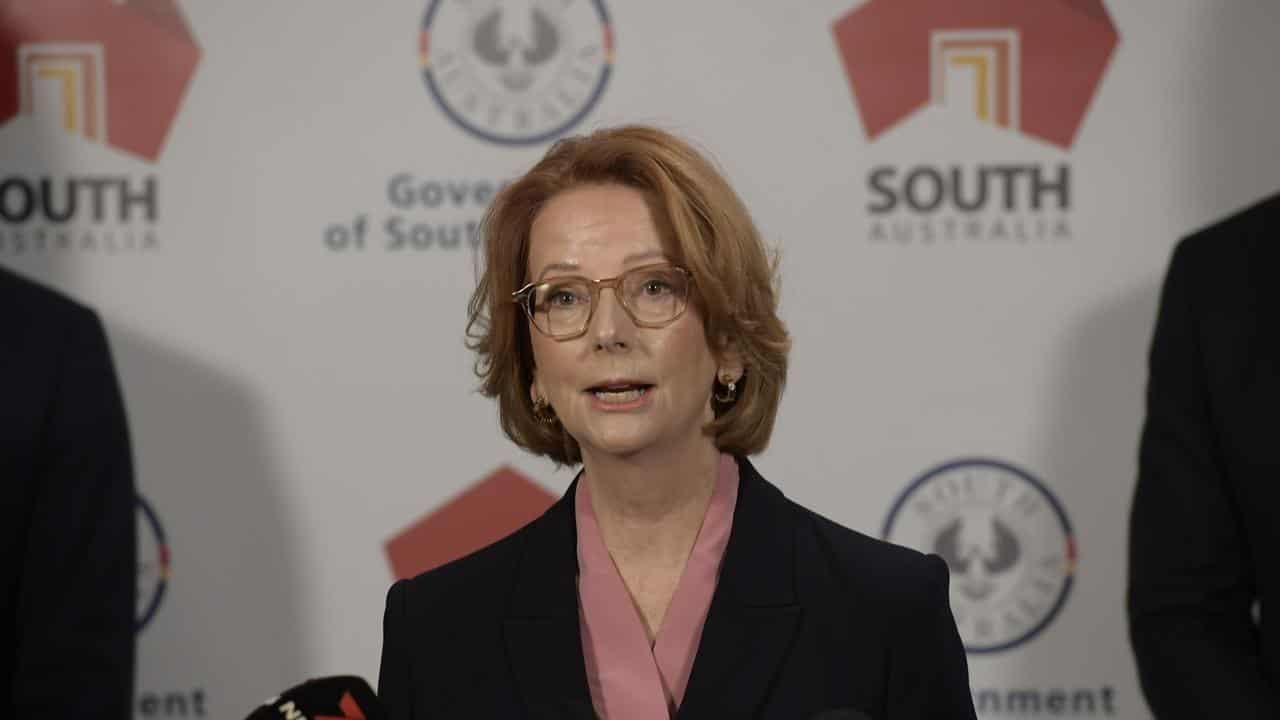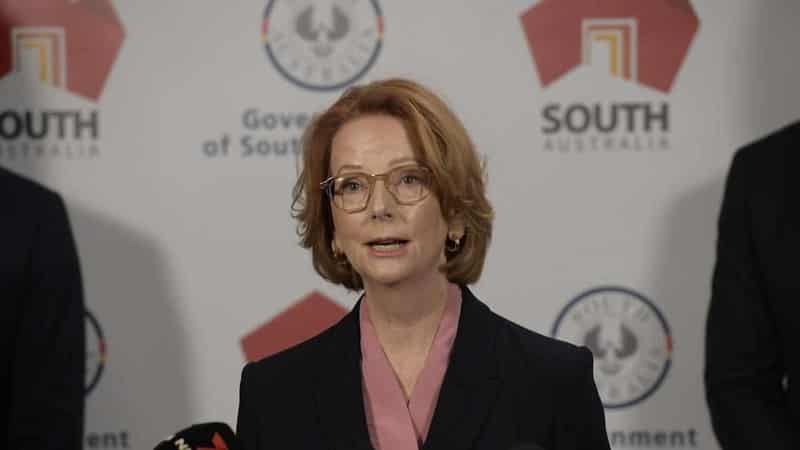
Children in South Australia will receive an extra year of preschool and benefit from a major expansion of out-of-school-hours care in an overhaul of early childhood learning in the state.
A Royal Commission into Early Childhood Education and Care delivered its final report with 43 recommendations handed down by commissioner and former prime minister Julia Gillard on Sunday.
More comprehensive child development checks for the first 1000 days of life, better support for parents, and improved access to child care were just some of the proposals for change in the report.
The commission aims to reduce the number of children starting school with developmental challenges by making South Australia the first state in the nation to offer up to 30 hours of preschool per week for three and four-year-olds who need the most support.
"The science now tells us that the biggest dividends are to be had if we invest in the early years, which really means that the best start gives you the foundations for a better life," Ms Gillard told reporters in Adelaide.
She said South Australia would also maximise the number of children who are at, or exceeding, developmental benchmarks when they start school.
"Getting there will require a new approach which is universal, but not uniform," she said.
"By that I mean every child will benefit but children who need it the most will get additional assistance - high quality, irrespective of a family's postcode, or the nature of the service that they choose."
An extra year of preschool will also be available for three-year-olds in both long daycare facilities and government preschools.
Ms Gillard said a universal entitlement of 15 hours a week of preschool for three-year-olds for 40 weeks a year would apply.
"Preschool itself will be redefined as more important than it is, and it will include families and children being connected to all of the services and supports that they need."
The South Australian government has committed an initial $70 million to immediately start implementing some of the recommendations.
Premier Peter Malinauskas said the royal commission's report had the power to change the lives of many young South Australians.
"The evidence is clear that the decisions we make in the first 1000 days of a child’s life help set the course for the rest of their life," Mr Malinauskas said.
"This is about ensuring fewer children are developmentally vulnerable when they start school."
Education Minister Blair Boyer said the reforms will change the lives of generations of children.
"Because when you invest in the early years, you make the biggest difference to a child’s life," he said.
Jessica Rudd, chief executive of advocacy group The Parenthood, said making out-of-school-hours care more widely available and affordable would have a direct impact on the ability of parents to work.
"OSHC services are a cornerstone of assisting families with their daily work-life balance while fostering children's social and life skills," she said.
Former South Australian premier Jay Weatherill, who now heads the Thrive by Five campaign for the philanthropic Minderoo Foundation, called for the government to adopt the commission's recommendations in full.
"A universally accessible, high-quality, accessible and affordable early learning system will also greatly improve workforce participation by primary carers – who are predominantly mothers – and will boost the South Australian economy," he said.
An interim report delivered in April suggested it would cost $212m by 2032 to deliver on the program, with the sector needing 660 more early childhood teachers and 1000 other staff to meet the increase in demand.









